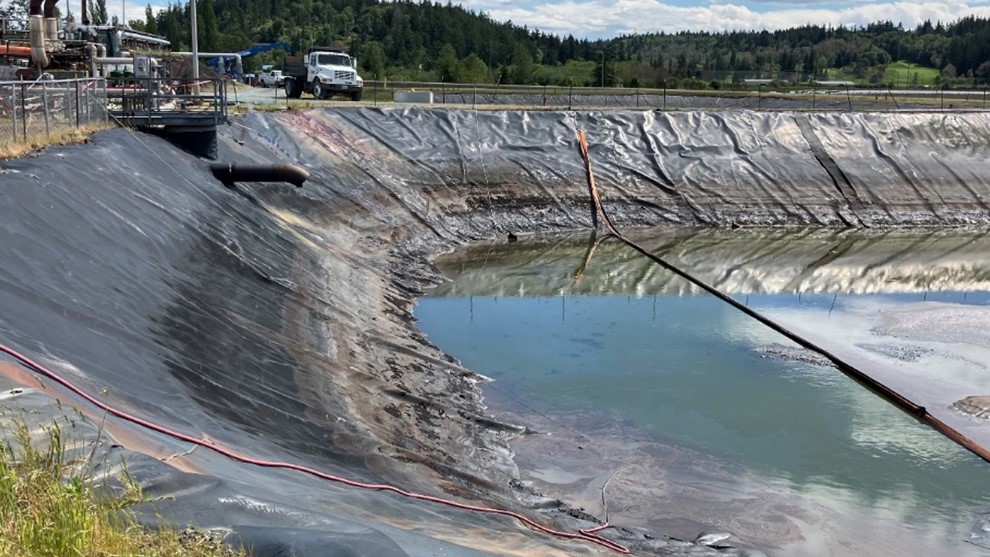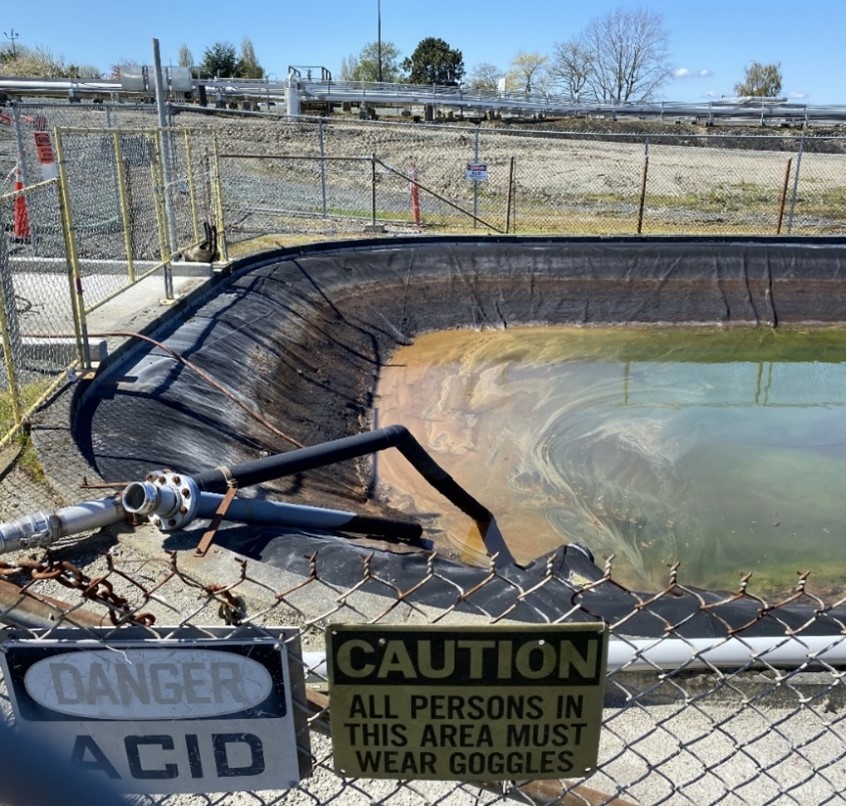Despite notifications from the Washington Department of Ecology for nearly a year, HF Sinclair and Tesoro improperly stored large volumes of dangerous waste at their Anacortes refineries in unsafe ways that put the environment at serious risk. Ecology issued separate notices of penalties today to the refineries for violating dangerous waste laws. HF Sinclair was penalized $1,303,000 and Tesoro was penalized $1,397,000.
Dangerous waste is material that is ignitable, corrosive, reactive, and/or toxic, and it can harm human health and the environment if it is not properly managed. HF Sinclair and Tesoro generate wastewater from their refining processes, which is treated at their respective on-site wastewater treatment facilities. Each facility was penalized for improper management of dangerous wastes at their wastewater treatment facilities.
Part of the spill containment area that held a sludge of dangerous waste at the HF Sinclair refinery.
In September 2023, oily process wastewater overflowed into a spill containment area at the HF Sinclair refinery. The containment area is intended to capture spills of non-hazardous wastewater and was not designed to be a dangerous waste storage area. Sludge that was dangerous waste settled out of the untreated wastewater. The sludge remained for 11 months before HF Sinclair ultimately removed and disposed of it in nine 20-yard containers. After removing the sludge, the single liner for the containment area was found to be ripped. The lengthy delay in cleaning up the spill unacceptably increased risks that the material could have escaped into the environment.
A portion of the 150,000-gallon neutralization pond at the Marathon Anacortes Refinery.
Tesoro’s penalty is related to its handling of the Marathon Anacortes Refinery’s neutralization pond, a 150,000-gallon artificial basin that held spent sulfuric acid from its industrial process. The wastewater was frequently about the same pH as battery acid, qualifying it as a dangerous waste (pH of 2 or less at any given time). The acidity in the pond needed to be controlled to prevent potential damage to the pond’s liner and a potential toxic release. Inspectors flagged the problem in 2022 and later began requiring regular testing of the pond, which revealed that dangerous acidity was an ongoing problem. It took Tesoro nine months to implement an alternative management method for the waste, increasing the risks for a potential release from the pond. Tesoro is working with Ecology to remove the remaining residue in the pond.
“HF Sinclair and Tesoro are two of the largest industrial facilities in the state, and safely handling millions of gallons of hazardous materials every day is their core business. They have the expertise, the resources, and the responsibility to extend that level of attention to their waste,” said Tom Buroker, director of Ecology’s Northwest Region. “In both instances, the refineries improperly held large amounts of dangerous waste over an extended period of time, which compounded the risk of serious harm to people and the environment.”
Ecology is continuing to investigate the environmental impacts from the mishandling of the dangerous wastes.
HF Sinclair and Tesoro each have 30 days to pay the penalties or appeal to the state Pollution Control Hearings Board.

